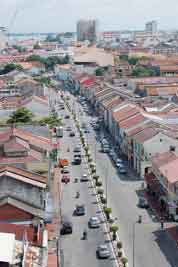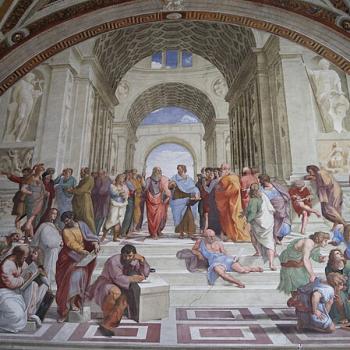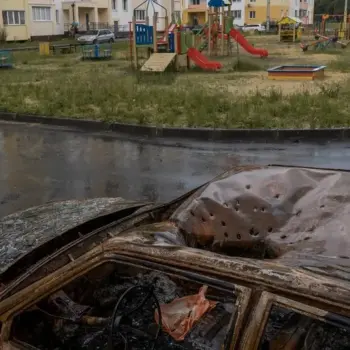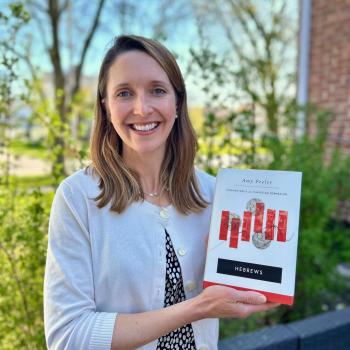By Rex Weyler
 After four decades in the environmental movement, I rejoice at signs of progress, but I also believe the pace of change remains too slow. We -- especially those privileged with daily meals, hot running water, and comfortable homes -- need to do more.
After four decades in the environmental movement, I rejoice at signs of progress, but I also believe the pace of change remains too slow. We -- especially those privileged with daily meals, hot running water, and comfortable homes -- need to do more.
I often struggle to reconcile realism with optimism. Realistically, two-thirds of all natural services to humankind are in decline: depleted fisheries, extinct species, toxic pollution, soil erosion, dying rivers, disappearing forests, melting glaciers, lopped-off mountain tops, and an atmosphere heating up like a flambé.
Facing these realities, my optimism comes from two sources: One, historic achievements for civil rights, women's rights, and disease treatment prove that society can change. Secondly, people, all over the world, show compassion and kindness. Simple people know how to enjoy rich lives with modest consumption. I know that we can learn to achieve a richer quality of life with simpler means, without demanding more of the earth than she can provide.
To achieve this, we cannot forever consume more and more of the earth. Humanity must embrace a new understanding of its place in the world. We cannot control nature. We are nature. The earth is abundant, but not infinite. Mother nature is generous and patient, but not infinitely so. We now face her limits, like a precocious child who has gone too far.
Authentic social change starts with common citizens who embrace a new understanding of moral dignity. We're not going to simply engineer our way free from natural laws. I believe we must go beyond appreciating nature and actually learn to worship nature.
The word "worship" derives from the Old English "weorthschippen," meaning to ascribe worth to something. Our modern society has ascribed worth to security, to money, to careers, and to nations. We have failed, as a society -- for millennia -- to ascribe worth to the one sustaining gift of the universe that we touch and feel every day: the earth itself. Perhaps it is time to ascribe worth to nature.
Perhaps we've looked in all the wrong places for miracles. We've looked into the heavens and into the future rather that here and now on Earth. In the gospels of Luke, Thomas, and Mary, we hear Jesus telling his followers, you won't find the divine kingdom by looking here or there, in the sky, or in some other time, but rather, "the kingdom is right here in your presence" and "spread out upon the earth, but people don't see it." We live inside the miracle every day. All we have to do is open our eyes and see it.
Karen Armstrong writes in The Battle for God: "All the world religions insist that no spirituality is valid unless it results in practical compassion." True spirituality is measured in action, not beliefs. We witness this in the deeds of Gandhi, Rosa Parks, or Aung San Sui Kyi in Burma. "To behave like a merely decent human being," writes the poet May Sarton, "one must think like a hero."
Humanity is now on the brink of ecological disaster from global warming, disappearing resources, and burgeoning population. We can change this pattern, but to do this, we must preserve the two elements of our world that sustain us: the natural environment and our own communities. We must adopt personal and social strategies that re-sanctify nature and re-localize society. We don't need superheroes, but ordinary heroes and common decency.
Humanity requires large-scale change, but eventually, change comes down to the daily choices and actions that make large-scale change possible. We must act as if the age of ecological enlightenment has arrived. Here and now, we might begin this transformation by changing our lives. Here are some things we can do to be part of the solution:
• Stop hydrocarbon use: Walk, ride a bike, or take public transport. Urge politicians to create low-impact public transportation.
• Grow and eat local food: Dining on exotic food, wrapped in plastic and shipped around the world with fossil fuels, is not sustainable. Preserve local agricultural land and start a backyard or community garden. To impress guests, serve something you grew.
• Slow consumption: We must virtually stop consuming certain products, and slow down all consumption. Shop secondhand. Recycle everything. Make global responsibility your fashion statement.
• Build community: We cannot solve the global ecological challenge as individuals, but we can as neighborhoods and communities. Grow compassion.
• Have courage. Challenging conventional thinking may attract ridicule. Do not be intimidated by the consequences of having a conscience. When one person stands up, others are inspired to stand up. This is the multiplying power of Gandhi or Aung San Su Kyi.
• Research. To transform society toward ecological responsibility, one must possess a genuine curiosity about how society works and how nature works.
• Use your skills: The best way to change the world is through the things you already know how to do and love to do. Use your skills, knowledge, and passions.
• Practice self-reflection: Ecology asks us to be humble, not proud. We must discover how to learn from nature.




